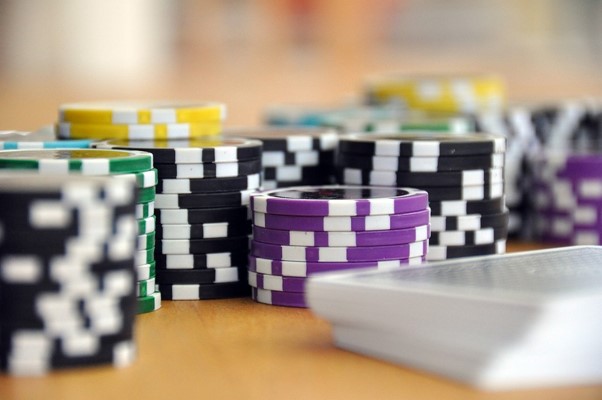Why do people like to poker?

Poker is one of the most popular games of chance in the world. It's enduring but its widespread appeal is hard to pin down.
The game has a complex structure of winning hands and an enormous variety of versions. It involves building hands of various strengths to try to out-score other players.
And thanks to online casinos, poker games are now more popular than they have ever been.
But what are the elements that make poker so appealing across so many types of player, so many age groups and so many cultures?
The cool image
There's something indefinable about poker. Just saying “lets play poker” has a certain cachet that bingo, slots or even roulette can't match.
Perhaps it's the combination of a thousand movie scenes. That could be a poker game in a western bar room, with hats tipped over player's eyes and nervous hands twitching on the butt of a gunslinger's pistol.
Or it could be a smoky dimly-lit room at the back of a sleazy bar, maybe a mafia haunt or an illegal drinking den. There is usually someone in a waistcoat and, of course, a stranger standing in the shadows.
At the same time, poker has an image that combines the shiny appeal of high-rolling casinos, international tournaments and a big winning night at a glittering venue overlooking the Mediterranean.
So a game of poker is a bit like entering a movie set, both dangerous and glamorous at the same time. Yes, poker is just a game – and yet it feels so much more.
The excitement of poker
Poker is a card game like thousands of others. It's based around the normal principles of a game of chance.
There is a pack of cards with symbols on one side but identical designs on the other. So it's impossible to see what the cards are until you have them in your hand.
But different version of poker take this thrill much further than ordinary games. Many versions include being dealt cards face down or having to discard and pick-up in various combinations.
This all ramps up the thrill and tension. It can simply be about turning over a card and finding that it is an ace… or a two. Something you really need to complete your hand – or something that is totally useless.
Betting on poker
Poker has a more complex betting structure too. You can choose to continue to match an aggressive bettor – or fold and wait the next hand.
You can bet big or small. You can bet so big everyone else folds – or you may simply end up losing big instead.
And in poker it's not just about what you choose to bet and when – but the unique subtleties of HOW you bet. An immediate high bet sends a certain signal to the rest of the players – a hesitant low bet sends a different one.
Scoring structure
The ranking of different poker hands and even the names given to them is all part of the mystique of the game.
Thinking you have a Royal flush or a full house actually SOUNDS great. Betting on a number in roulette or trying to reach 21 in blackjack can suddenly seem rather mundane in comparison.
Social
For all the confrontation, danger and tension of live poker, it's also a brilliant game to play with a group of friends.
Handle the competitive elements correctly and a poker session is a very sociable event.
Players can lose graciously and win politely – and still remain friends.
The appliance of science
Probability experts, scientists and maths experts choose poker. They say it is the only game where you aren't gambling against the house and against odds that are naturally stacked in favour of the casino.
In poker you can twist the laws of probability in your favour to some extent – by playing more cleverly than your opponents.
Like chess it has an enduring logical appeal. As a player you have to make decisions based on incomplete information.
You are aware that you have certain cards in your hand and you can estimate the probability of other cards coming your way from the deck.
But the strength of your opponents' hands has to be estimated based on tiny hints garnered from experience: it could be the way they hold their cards, their personal playing style, they way they bet or tiny clues in their body language.
This means there is never a perfect strategy. You cannot completely predict the odds. The ‘facts' you gain while watching opposing players are very tenuous and may be read differently by someone else.
There is no strategy that guarantees maximum success rate. And yet…
There are professional poker players who make a living from playing poker. So we all dream – yes, there must be a way of titling the odds in your favour.
839GYLCCC1992



Leave a Reply